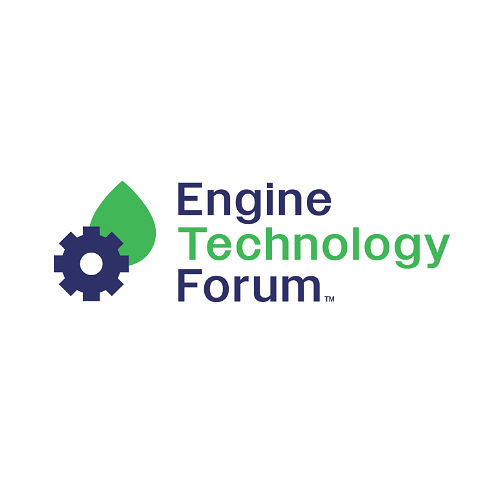
Navigating Energy’s New Terrain: Experts Chart a Course Through Policy Shifts
As U.S. energy policies undergo a rapid transformation, businesses are scrambling to adapt. A key webinar featuring leading industry experts aims to provide clarity and actionable insights for a resilient future.
Navigating Energy’s New Terrain: Experts Chart a Course Through Policy Shifts
By Joyce Watson
November 06, 2025
Washington D.C. – The ground is shifting beneath the feet of energy-dependent industries. A confluence of new U.S. energy and economic policies – including the Inflation Reduction Act and the Bipartisan Infrastructure Law – is forcing businesses across the transportation, agriculture, construction, and power generation sectors to reassess strategies and prepare for a future defined by both opportunity and uncertainty. To address the growing need for clarity, the Engine Technology Forum is hosting a webinar, “Seeking Solutions for Sustainable Energy and Technology to Power a Resilient Economy,” on November 20th, bringing together a panel of seasoned experts to navigate this complex landscape.
For companies accustomed to relative stability, the pace of change is proving challenging. “There’s a real sense of urgency now,” says an analyst at a leading investment firm, who requested anonymity. “The rules of the game are being rewritten, and businesses need to understand how these new policies will impact their bottom line.”
The webinar arrives at a critical juncture. The Inflation Reduction Act, with its substantial investments in clean energy, is creating incentives for a shift away from fossil fuels. Simultaneously, the Bipartisan Infrastructure Law is funneling funds into upgrading aging infrastructure and deploying new technologies. However, the implementation of these policies is far from seamless, and a lack of clear guidance is leaving many businesses in a state of limbo.
“The biggest challenge isn’t necessarily the technology itself, but the regulatory uncertainty,” explains Tammy Klein, Founder and Principal at Transport Energy Strategies, and a panelist for the upcoming webinar. “Companies need a clear signal about where the market is headed to make informed investment decisions.”
Balancing Sustainability and Affordability
The webinar promises to delve into the crucial balance between sustainability and affordability – a challenge that is particularly acute in the transportation sector. While the push for electric vehicles is gaining momentum, the high cost of EVs and the limited availability of charging infrastructure remain significant barriers to adoption.
“The transition to electric mobility is not going to happen overnight,” states Dr. Ameya Joshi, Founder and Principal at Mobility Notes, also a panelist. “We need a diversified approach that includes alternative fuels, hybrid technologies, and improvements in fuel efficiency.” Dr. Joshi emphasizes the importance of considering the entire lifecycle emissions of different technologies, rather than focusing solely on tailpipe emissions.
The agricultural sector faces its own unique set of challenges. Farmers are under increasing pressure to reduce their carbon footprint, but many lack the resources to invest in sustainable practices and technologies.
“There's a real need for financial assistance and technical support to help farmers adopt more sustainable practices,” states an agricultural economist, speaking on background. “The transition to a more sustainable agriculture system will require a collaborative effort between government, industry, and farmers.”
Navigating a Shifting Policy Landscape
The webinar will also explore the impact of evolving emissions standards and regulations on various industries. The Environmental Protection Agency (EPA) is tightening emissions standards for vehicles and power plants, forcing companies to invest in cleaner technologies and reduce their reliance on fossil fuels.
“The regulatory landscape is becoming increasingly complex, and it’s difficult for businesses to keep up,” says Dr. Graham Conway, Managing Director at Pickering Energy Partners, and moderator of the webinar. “Companies need to understand the implications of these regulations for their operations and develop strategies to comply.”
One significant source of uncertainty stems from the interplay between federal and state policies, particularly in California, which has often led the nation in environmental regulation. The webinar will address how these differing approaches are creating challenges for businesses operating in multiple states.
“California’s policies are often more stringent than federal regulations, creating a complex regulatory environment for companies operating in the state,” notes an energy attorney, speaking anonymously. “Businesses need to navigate these differing approaches and develop strategies to comply with both federal and state regulations.”
Looking Ahead: Building a Resilient Future
The Engine Technology Forum webinar is not just about identifying the challenges facing the energy sector; it’s about finding solutions and building a more resilient future. The panel will share insights into emerging technologies, innovative business models, and policy recommendations that can help businesses navigate this period of transformation.
“We want to provide companies with the tools and information they need to make informed decisions and thrive in this new energy landscape,” Dr. Conway explains. “The transition to a more sustainable energy system will require a collaborative effort, and we’re committed to facilitating that dialogue.”
The webinar is scheduled for November 20th and is open to industry professionals, policymakers, and anyone interested in learning more about the future of energy. Registration details are available on the Engine Technology Forum website. As the energy landscape continues to evolve, events like this will be crucial for fostering collaboration and driving innovation, ensuring a future where economic growth and environmental sustainability go hand in hand.
